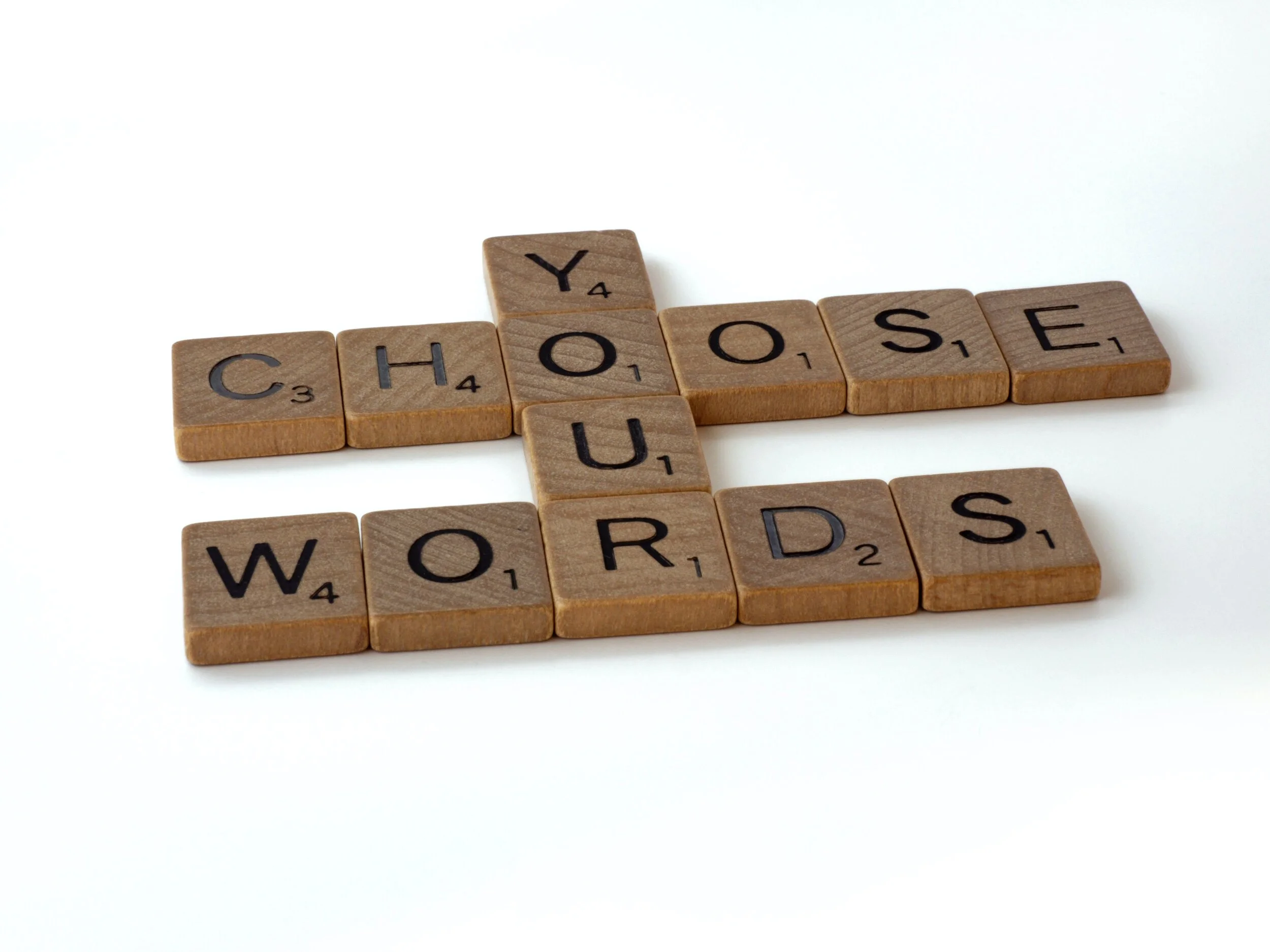The Power of Language
The use of language in grief can be incredibly powerful. I remember the first time I said “My son is dead” out loud. Between this painful yet liberating memory, and a recent session with a grieving client, I was reminded about the power that language plays in the role of grief and loss. As I’ve shared in previous posts, podcasts and other written works, grief and loss can include several different things. Grief over the loss of employment, a relationship and even your identity plus many more. But for the sake of this message I am speaking specifically to death.
When I sat on the couch of my therapist’s office and said those words out loud, I was overwhelmed by the flood of emotions that immediately followed those words. It was a liberating release. It was me stepping into the true realization that my son was dead and would never come back. It was the feeling of regaining control of how I was feeling and experiencing my loss and taking back that power from grief through the use of language.
Saying passed away was something spiritual for me, as it usually is for most. My belief that he had “gone to glory” or to a place more beautiful and peaceful then here and that his soul lives on were all things that I still believe to be true, however were not connecting to the reality of it all. In fact, Iearned from a medical professional that the often encourage very concrete use of language when a patient has died. I realized that my choice of language use contributed to my space of dissociated from the fact of the matter. And when I made that conscious switch, it hit different.
It hit in a way that I was able to feel the brevity of all the pain that came along with losing a loved one. Losing the hopes and dreams of what a future would be like for an individual. The loss of the future you potentially had with that individual. Once I said those things out loud, I was able to connect to a powerful sense of regaining control.
When death happens, you feel like you have lost all sense of control in the world. Sure, we all know that if we were born, we one day die. But when it happens in the literal sense it rocks your world. The energy and space around you is on total pause. But the REAL world never stopped. It keeps moving and going and most times, most of us have to keep moving and going as well.
I’ve been there. Like a robot going through the motions. AND going through emotions and excelling well…outwardly. Yet Inwardly, I was my own little emotional war zone. One moment all the hope of the future still existed and then in the next literal second of a moment it was fuck the future and let’s do something reckless!
So when you are in a place of feeling so out of control of your emotional experience minute by minute, second by second, it is nice to regain back some of that power and control through the use of language to yourself and also to others. You have the emotional autonomy to choose between my *insert loved ones name* “passed away” or “they died”. You can elect to respond; *XYZ* was 4 years old or *XYZ* is 4 years old.
The personal use and selection of language is all about identifying what supports YOU emotionally in that moment. Perhaps you are in the space of realization and actively working through feeling the pain to heal from the pain. Or, perhaps you are in the active space of avoiding the pain through dissociation and non-acceptance. This works too because it is where you are at that time.
Shortly after my son died, we got the unexpected news of a surprise pregnancy. And when people see pregnant woman, they automatically want to ask so many questions. I was constantly hit with “Is this your first child”? If I chose to answer “yes” in that moment it meant 1. I lied, but the lie was to protect me emotionally. Because there usually were not a ripple of questions following that. And I felt guilty because I failed to acknowledge my other living child and the dead one. But if I answered “no” the ripple of questions most almost certainly included; How old is your oldest? Do you know if you are having a boy or girl? How many other children do you have? The how old is your oldest and the how many other children do you have was always so incredibly hard to respond too.
Do I say two? Do I say one? Do I say one alive and one dead? All around it was a guilt fest in my mind and exhausting in my emotional warzone. But at the same time my choice and use of language had power for me. I could in those moments pay attention to how I was feeling on that particular day or in that particular moment and regain a sense of control over my grieving process and chose what I would share or not, in a way that honored where I was.
Meeting ourselves where we are in our emotional needs, and process involving anything is critical to survivorship in life, and in adulting and especially in grief. The paradox to control is letting go. So let go of any previously submitted notions about the timeline of your grief and loss and or what your level of acceptance is or isn’t.
I’ve been there personally and know firsthand that there is definite power in the use of language in grief. So I encourage you to grieve in the best way that supports you. And know that while all things may feel completely out of control and out of your hands, there are still spaces in grief where you are in control.





